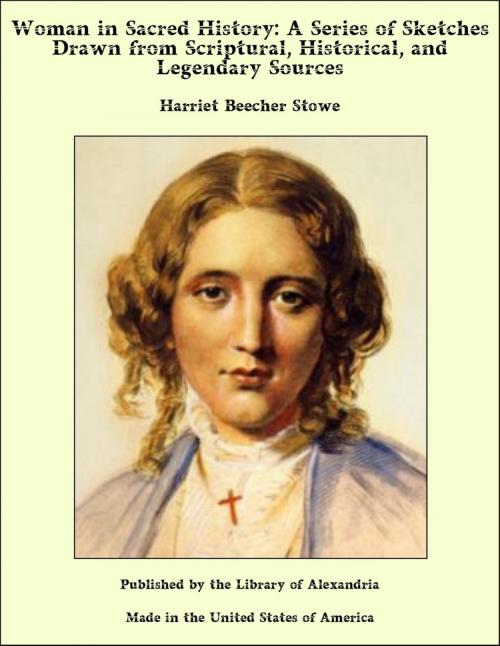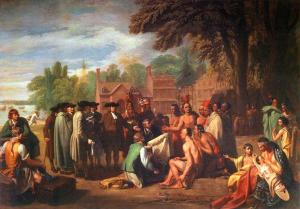Woman in Sacred History: A Series of Sketches Drawn from Scriptural, Historical, and Legendary Sources
Nonfiction, Religion & Spirituality, New Age, History, Fiction & Literature| Author: | Harriet Beecher Stowe | ISBN: | 9781465609700 |
| Publisher: | Library of Alexandria | Publication: | March 8, 2015 |
| Imprint: | Language: | English |
| Author: | Harriet Beecher Stowe |
| ISBN: | 9781465609700 |
| Publisher: | Library of Alexandria |
| Publication: | March 8, 2015 |
| Imprint: | |
| Language: | English |
The object of the following pages will be to show, in a series of biographical sketches, a history of Womanhood under Divine culture, tending toward the development of that high ideal of woman which we find in modern Christian countries. All the characters comprised in these sketches belong to one nationality. They are of that mysterious and ancient race whose records begin with the dawn of history; who, for centuries, have been sifted like seed through all the nations of the earth, without losing either their national spirit or their wonderful physical and mental vigor. By this nation the Scriptures, which we reverence, were written and preserved. From it came all the precepts and teachings by which our lives are guided in things highest and holiest; from it came He who is at once the highest Ideal of human perfection and the clearest revelation of the Divine. We are taught that the Creator revealed himself to man, not at once, but by a system progressively developing from age to age. Selecting one man, he made of his posterity a sacerdotal nation, through which should gradually unfold a religious literature, and from which should come a succession of religious teachers, and the final development, through Jesus, of a religion whose ultimate triumphs should bring complete blessedness to the race. In tracing the Bible narrative from the beginning, it is interesting to mark the effect of this great movement in its relation to women. We understand by the patriarchal period the interval between the calling of Abraham and the public mission of Moses. The pictures of life at this time are interesting, because they give the clearest idea of what we may call the raw material on which the educational system of the Divine Being began to work. We find here a state of society the elements of which are in some respects peculiarly simple and healthful, and in others exhibiting the imperfections of the earth's childhood. Family affection appears to be the strongest force in it, yet it is family affection with the defects of an untaught, untrained morality. Polygamy, with its well-known evils, was universal in the world. Society was broken into roving tribes, and life was a constant battle, in which artifice and deception were the only refuge of the quiet and peace-loving spirit. Even within the bounds of the family, we continually find fraud, artifice, and deception. Men and women, in that age of the world, seem to have practiced deceit and spoken lies, as children do, from immaturity and want of deep reflection. A certain childhood of nature, however, is the redeeming charm in all these pictures. There is an honest simplicity in the narrative, which refreshes us like the talk of children. We have been so long in the habit of hearing the Bible read in solemn, measured tones, in the hush of churches, that we are apt to forget that these men and women were really flesh and blood, of the same human nature with ourselves. A factitious solemnity invests a Bible name, and some good people seem to feel embarassed by the obligation to justify all the proceedings of patriarchs and prophets by the advanced rules of Christian morality. In this respect, the modern fashion of treating the personages of sacred story with the same freedom of inquiry as the characters of any other history has its advantages. It takesthem out of a false, unnatural light, where they lose all hold on our sympathies, and brings them before us as real human beings. Read in this way, the ancient sacred history is the purest naturalism, under the benevolent guidance of the watchful Father of Nations.
The object of the following pages will be to show, in a series of biographical sketches, a history of Womanhood under Divine culture, tending toward the development of that high ideal of woman which we find in modern Christian countries. All the characters comprised in these sketches belong to one nationality. They are of that mysterious and ancient race whose records begin with the dawn of history; who, for centuries, have been sifted like seed through all the nations of the earth, without losing either their national spirit or their wonderful physical and mental vigor. By this nation the Scriptures, which we reverence, were written and preserved. From it came all the precepts and teachings by which our lives are guided in things highest and holiest; from it came He who is at once the highest Ideal of human perfection and the clearest revelation of the Divine. We are taught that the Creator revealed himself to man, not at once, but by a system progressively developing from age to age. Selecting one man, he made of his posterity a sacerdotal nation, through which should gradually unfold a religious literature, and from which should come a succession of religious teachers, and the final development, through Jesus, of a religion whose ultimate triumphs should bring complete blessedness to the race. In tracing the Bible narrative from the beginning, it is interesting to mark the effect of this great movement in its relation to women. We understand by the patriarchal period the interval between the calling of Abraham and the public mission of Moses. The pictures of life at this time are interesting, because they give the clearest idea of what we may call the raw material on which the educational system of the Divine Being began to work. We find here a state of society the elements of which are in some respects peculiarly simple and healthful, and in others exhibiting the imperfections of the earth's childhood. Family affection appears to be the strongest force in it, yet it is family affection with the defects of an untaught, untrained morality. Polygamy, with its well-known evils, was universal in the world. Society was broken into roving tribes, and life was a constant battle, in which artifice and deception were the only refuge of the quiet and peace-loving spirit. Even within the bounds of the family, we continually find fraud, artifice, and deception. Men and women, in that age of the world, seem to have practiced deceit and spoken lies, as children do, from immaturity and want of deep reflection. A certain childhood of nature, however, is the redeeming charm in all these pictures. There is an honest simplicity in the narrative, which refreshes us like the talk of children. We have been so long in the habit of hearing the Bible read in solemn, measured tones, in the hush of churches, that we are apt to forget that these men and women were really flesh and blood, of the same human nature with ourselves. A factitious solemnity invests a Bible name, and some good people seem to feel embarassed by the obligation to justify all the proceedings of patriarchs and prophets by the advanced rules of Christian morality. In this respect, the modern fashion of treating the personages of sacred story with the same freedom of inquiry as the characters of any other history has its advantages. It takesthem out of a false, unnatural light, where they lose all hold on our sympathies, and brings them before us as real human beings. Read in this way, the ancient sacred history is the purest naturalism, under the benevolent guidance of the watchful Father of Nations.















